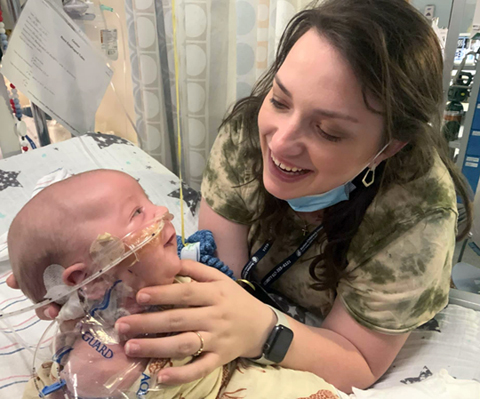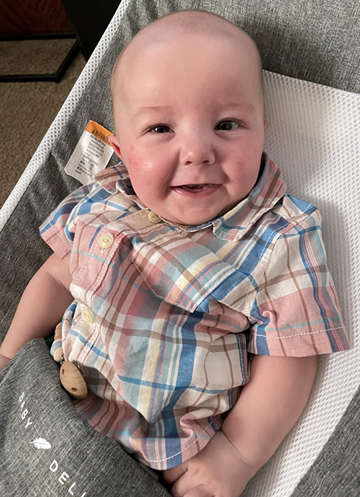The “impossible” can be done, and that’s one thing that one little baby and his family have seen first-hand. Shortly after baby Walton Russell was born, doctors in San Antonio gave a grim prognosis. Walt was facing a rare medical condition that most hospitals have no treatment for other than the “wait and see” supportive care approach that leads to less than ideal results. Walt’s parents quickly began researching and found the one hospital that offers an innovative treatment for Long Gap Esophageal Artesia, and they flew to Boston to try what some doctors say couldn’t be done.

The innovative technique to help children with this rare condition has helped hundreds of children over the past fifteen years. Like with many treatments for very rare illnesses, due to a lack of studies and resources, this treatment is still not general standard-of-care. In fact, doctors didn’t even offer it to the Russells, who just happened to find research that led them to the place that pioneered this surgery….a surgery that gives babies like Walt chances they would likely not have otherwise.
We got an update from his parents Maycee and Bolton Russell after they returned home to Medina County for the first time this past July:
“We are now home from Boston after four months and Walt is doing great. His esophagus connection was a success and it looks great. He had initial breathing obstacles due to his tracheomalacia, but we are managing it and he is doing well. We will return to Boston in two weeks for another EGD to check his esophagus diameter and the need for another dilation. We hope this is the last visit for several more months. He is still 100% tube fed but we will be working with feeding therapists to begin oral feeds.
“We are so thankful for all of the support and prayers that have gotten us through this time. We still have a journey ahead of us, but are thrilled to be home as a family.

“Shortly after he was born, Walt was diagnosed with Esophageal Atresia Type B (Long Gap) Tracheoesophageal Atresia, and tracheomalacia among other complications. When we were first told after his birth, they couldn’t give us a timeline for going home. It could be three, six, twelve months. After some consideration, we took the risk to travel to Boston Children’s Hospital to be treated by their world renowned Esophageal and Airway Treatment Center. Walt underwent what’s known as the Foker Process which saved his chance at living life with as close to a normal and original esophagus as possible. We were discharged from the hospital in Boston when he was 5 1/2 months old, his first time ever being home.
“There were mountains and valleys. Bright days and grim days. He faced complications, a failed connection, six weeks sedated and paralyzed, and a rocky recovery. But we wouldn’t have wanted anyone else treating Walt. The experts saved his quality of life when other surgeons around the country want to experiment on kids like him.
“If we have learned anything throughout this process, you are the best advocate. For yourself, for your child, for your parent. Whomever you are caring for, your investment in their care is essential to their success. Don’t be afraid to speak up, question the experts, and make sure the best care and solutions possible are being provided. Seek out second opinions and help. There are copious amounts of help out there.
“A partnership between the patient, family, and care team can do wonders, and we have seen that first hand.”
By Kayleen Holder
Editor

